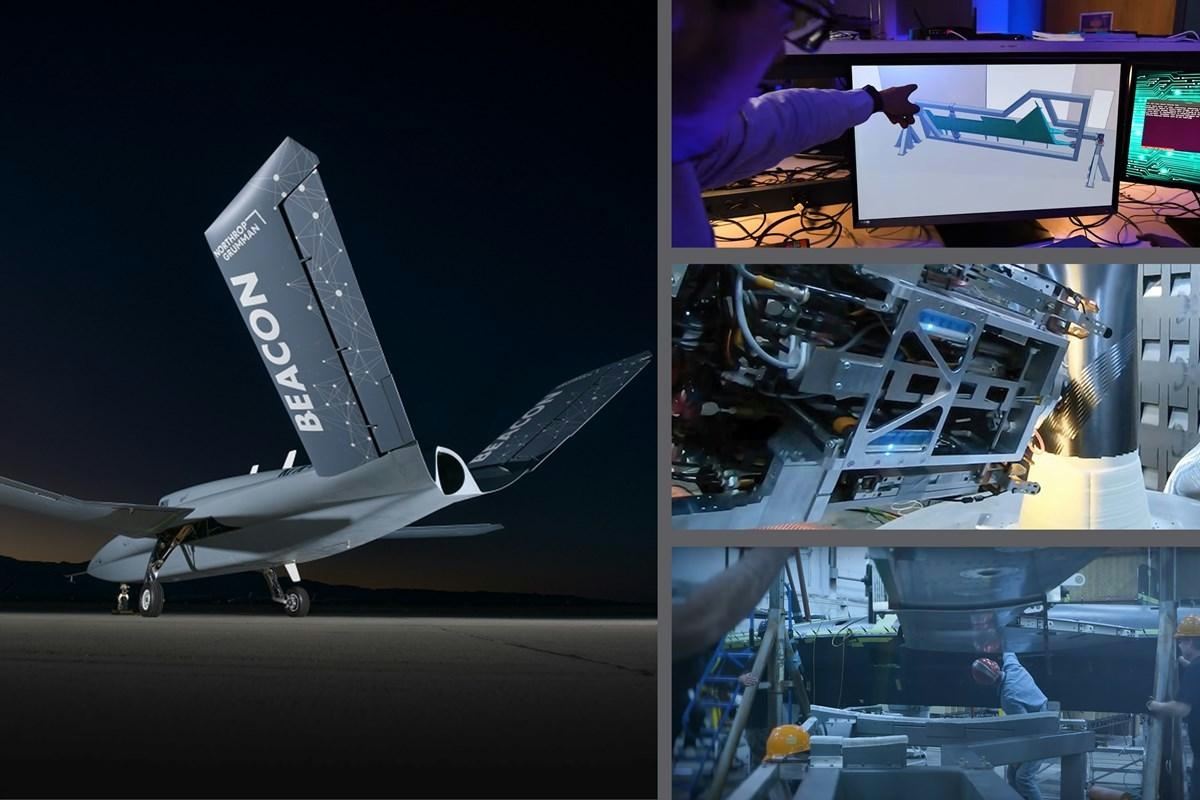AeroGenie — Votre copilote intelligent.
Tendances
Categories
Northrop Grumman to Conduct AI Flight Tests on Beacon Jet

Northrop Grumman to Conduct AI Flight Tests on Beacon Jet
Northrop Grumman is preparing to initiate flight testing of its Beacon project this fall, utilizing a modified Scaled Composites Model 437 “Vanguard” jet to assess artificial intelligence (AI) capabilities in operational flight conditions. This initiative represents a critical advancement in the Pentagon’s broader strategy to incorporate AI technologies into next-generation combat aircraft. Live flight trials are considered essential to validate the technology before its potential deployment across military fleets.
Testing Framework and Industry Collaboration
The Vanguard jet will be equipped with Northrop’s Prism software, which oversees fundamental flight and safety operations while allowing third-party developers to integrate their own AI systems. Each test flight will be conducted with a safety pilot on board, prepared to take manual control if necessary. Initial flights will concentrate on verifying the reliability of Prism itself, followed by evaluations of AI software developed by partner companies. Testing is expected to continue through 2026.
Six technology firms—Applied Intuition, Autonodyne, Merlin Labs, Red 6, Shield AI, and SoarTech—are participating in the initial phase. Their AI systems will be tested for a range of functions including navigation, cooperative operations with other aircraft, and mission planning. Northrop introduced Beacon in June as an “open-architecture ecosystem” designed to reduce barriers for AI developers by providing a ready-made flight test platform. Dan Salluce, Northrop Grumman’s director of advanced autonomy, emphasized the market demand for autonomous testbeds, noting that many AI innovators lack hardware capabilities. This approach enables software developers to focus on innovation while Northrop ensures flight safety and operational support.
Strategic Context and Challenges
The Beacon project aligns with ongoing Pentagon initiatives such as the US Air Force’s Collaborative Combat Aircraft program, which seeks to integrate piloted fighters with autonomous drones, as well as early-stage Navy autonomy efforts. The Vanguard is intended to complement other Air Force test platforms, including the X-62A VISTA at Edwards Air Force Base and the VENOM F-16s at Eglin Air Force Base. Unlike these combat aircraft, Beacon is designed for frequent, lower-cost flights, supported by Northrop’s telemetry and infrastructure.
Despite its promise, the program faces significant challenges. Ensuring the safety and reliability of autonomous systems remains a top priority, especially as third-party AI software is incorporated. Regulatory issues surrounding autonomous flight require close coordination with aviation authorities. Additionally, integrating diverse AI systems from multiple vendors introduces considerable technical complexity.
Market response to Northrop’s Beacon initiative has been robust, with growing interest from defense and aerospace sectors. Competitors are expected to accelerate their own AI and autonomy projects, potentially fostering new partnerships to develop similar technologies.
The Vanguard Jet Platform
The Vanguard, developed by Northrop’s Scaled Composites subsidiary in California, is a single-seat jet measuring 41 feet in length and wingspan, with a gross weight of 10,000 pounds. It is powered by a Pratt & Whitney PW535 turbofan engine, capable of reaching speeds up to Mach 0.85. The aircraft has a range of 2,600 nautical miles and can operate at altitudes up to 25,000 feet.
As Northrop Grumman advances toward Beacon’s inaugural flights, the project is positioned to play a significant role in the evolution of AI-driven military aviation.

Emirates Unveils Cabin Design for New Boeing 777X

Eighteen Years On, the Airbus A380 Remains Central to a $34 Billion Airline

How a boom in luxury airline seats is slowing down jet deliveries

Navitaire Outage Attributed to Planned Maintenance

DigiYatra Debuts Outside Aviation at India AI Impact Summit

Vietnam Orders Strengthen Boeing’s Commercial Outlook

Airbus Signals Uncertainty Over Future A400M Orders

JobsOhio Awards $2 Million Grant to Hartzell Propeller for Innovation Center

Collins Aerospace Tests Sidekick Autonomy Software on YFQ-42A for U.S. Air Force CCA Program

How the Airbus A350-1000 Compares to the Boeing 777
